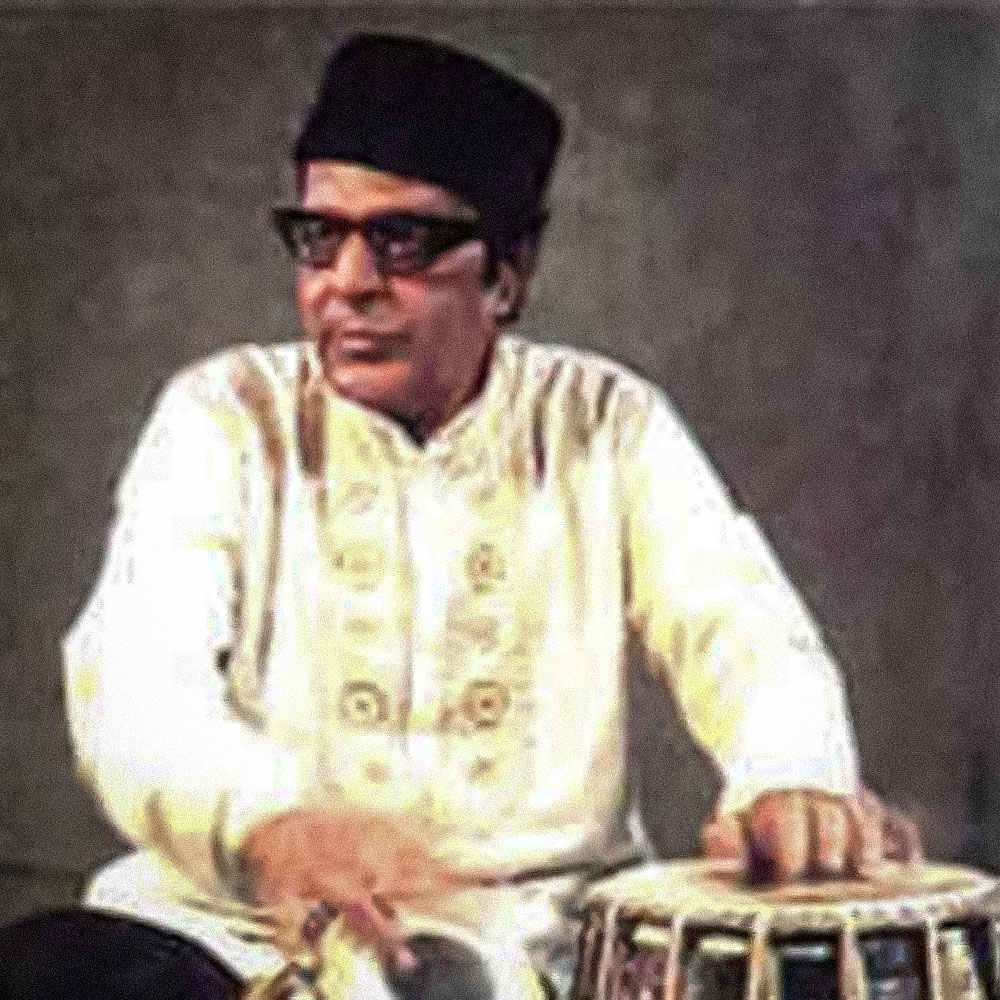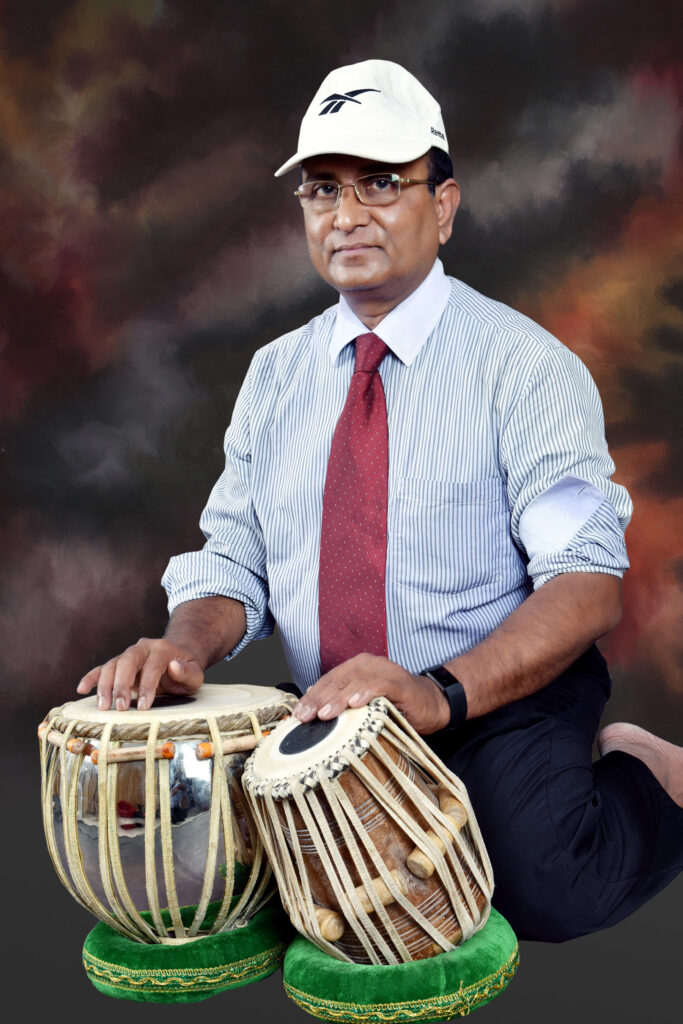Pandit Samta Prasad Mishra: The Rhythm King of Tabla,Pandit Samta Prasad Mishra: The Rhythm King of Tabla Pandit Samta Prasad Mishra, often referred to as “Gudai Maharaj,” was a monumental figure in Indian classical music and one of the most revered tabla maestros of the 20th century. Known for his virtuosic skill, thunderous sound, and impeccable precision, Pandit Samta Prasad belonged to the illustrious Benares Gharana. His life and art remain an enduring inspiration for tabla players and lovers of Indian classical music worldwide.
Introduction
Pandit Samta Prasad Mishra, often referred to as “Gudai Maharaj,” was a monumental figure in Indian classical music and one of the most revered tabla maestros of the 20th century. Known for his virtuosic skill, thunderous sound, and impeccable precision, Pandit Samta Prasad belonged to the illustrious Benares Gharana. His life and art remain an enduring inspiration for tabla players and lovers of Indian classical music worldwide.
This blog delves into the life, artistry, and timeless contributions of Pandit Samta Prasad Mishra.
Early Life and Training
Pandit Samta Prasad was born on July 20, 1921, in Kabir Chaura, Varanasi, a city celebrated for its rich musical heritage. He came from a family steeped in musical tradition, and his father, Pandit Hari Sahay, was a respected tabla player in his own right.
After the untimely demise of his father, young Samta Prasad took up the responsibility of carrying forward the family’s musical legacy. His initial training was under the watchful guidance of his father’s disciples and later under the legendary Pandit Bikku Maharaj, who played a pivotal role in shaping his formidable skills.
The Artistry of Pandit Samta Prasad
Pandit Samta Prasad’s tabla playing was characterized by his unparalleled command over rhythm, speed, and clarity. A master of both accompaniment and solo performances, his artistry reflected the rich traditions of the Benares Gharana, known for its vibrant and powerful compositions.
- Explosive Power and Precision:
Gudai Maharaj was renowned for his ability to produce thunderous yet precise sounds. His compositions, particularly the kaidas and relias, showcased his technical brilliance and deep understanding of rhythm. - Complexity with Simplicity:
Despite his advanced skills, Samta Prasad had an uncanny ability to make even the most intricate patterns accessible to his audience. His playing resonated equally with connoisseurs and laypersons. - Versatile Accompaniment:
As an accompanist, Pandit Samta Prasad was highly sought after. He collaborated with stalwarts like Pandit Ravi Shankar, Ustad Bismillah Khan, and Pandit V.G. Jog, seamlessly blending his rhythms with their melodies. His sensitive approach enhanced every performance, making him a favorite among musicians.
Notable Performances and Achievements
Pandit Samta Prasad’s illustrious career was dotted with countless iconic performances, both in India and abroad.
- Performance Highlights:
His mesmerizing solos at the Harivallabh Sangeet Sammelan, Sawai Gandharva Music Festival, and various concerts in Europe and the USA are legendary. - Film Contributions:
Gudai Maharaj also contributed to Indian cinema, playing tabla for the soundtrack of Satyajit Ray’s masterpiece “Pather Panchali”, which brought Indian classical music to the global stage. - Awards and Recognition:
- He was honored with the prestigious Padma Bhushan by the Government of India for his contribution to music.
- He received the Sangeet Natak Akademi Award, the highest recognition for performing artists in India.
- His title of “Tabla Samrat” (Emperor of Tabla) was a testament to his unmatched artistry.
Anecdotes of Genius
Pandit Samta Prasad was known for his wit and humility. During a concert, when asked to play a particularly challenging rhythmic cycle (taal), he responded with a smile, “First, let me play it slowly for you to understand; then I will show you its true beauty.” What followed was a breathtaking display of artistry, beginning with a simple pattern and culminating in a crescendo of unparalleled complexity.
Such anecdotes highlight not only his technical brilliance but also his deep respect for his art and audience.
The Legacy of the Benares Gharana
As one of the foremost exponents of the Benares Gharana, Pandit Samta Prasad upheld its traditions while infusing his personal touch. The gharana is known for its powerful, resonant playing and a rich repertoire of compositions like peshkars, kaidas, tukras, and parans. Gudai Maharaj’s contributions expanded this tradition, inspiring generations of tabla players to follow in his footsteps.
Pandit Samta Prasad in Global Context
Pandit Samta Prasad was instrumental in bringing Indian classical rhythm to the global stage. His collaborations with international artists and his involvement in film music introduced tabla to a wider audience, creating a bridge between Indian and Western musical traditions.
Cultural Impact and Enduring Influence
Pandit Samta Prasad’s influence transcends generations. His recordings continue to serve as an educational resource for aspiring tabla players, while his performances remain a benchmark for excellence.
Quoting the renowned sitar maestro Pandit Ravi Shankar:
“When Samta Prasad played the tabla, you didn’t just hear the rhythm—you felt it in your soul.”
Conclusion
Pandit Samta Prasad Mishra was not merely a tabla player; he was a beacon of rhythm and a symbol of the divine connection between music and spirituality. His unparalleled skills, humility, and dedication to his craft made him an icon of Indian classical music.
As we remember Gudai Maharaj, we celebrate a life devoted to the tabla and the rich legacy he left behind. Whether you are a musician, a student of the arts, or a lover of Indian music, Pandit Samta Prasad’s journey offers endless inspiration and a reminder of the transformative power of rhythm.
Let his beats echo in your heart as you explore the timeless beauty of the tabla.

Shree Bhagwan Singh learned tabla from Pandit Samta Prasad for a long time and went on to publish works about tabla, perform in India and abroad, and bring fame to his Guruji’s name.

